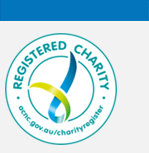Author Credentials
Celeste G PERCY MSN, RN
A. Fuchsia HOWARD PhD, RN
Bobby LEE MD
Janarthanan SATHANANTHAN MBCHB, MPH
David A WOOD MD
John G. WEBB MD
Sandra B. LAUCK PhD, RN
Abstract
Background: Internationally, transcatheter aortic valve implantation (TAVI) is the most common approach for treating aortic stenosis. There is growing evidence to support the implementation of a streamlined clinical pathway to optimise outcomes, improve capacity and facilitate safe early discharge home. Best practices that are emerging include adopting a minimalist approach and transition from general anaesthesia to conscious sedation or local anesthesia only. We aimed to explore what could be learned from patients’ experiences of their care in this rapidly evolving context
Methods: We conducted a qualitative study of patients in the first week after TAVI to explore their perspectives of the procedure and elicit their recommendations. We used interpretive description as the methodological approach to not only inform data collection and analysis but also to generate evidence to inform practice.
Results: We recruited 15 participants, five women and ten men, with a mean age of 83 years (±5.4) who had transfemoral TAVI with minimal sedation (n=14) in a hybrid operating room (n=6) or a cardiac catheter laboratory (n=9) and were discharged home without complications the day after their procedure. The overarching theme of ‘I want to be a member of my heart team during my procedure’ emerged, and was illustrated by three themes: ‘Who am I to them?’ (situating self in relation to the team), ‘How can I be a good patient?’ (knowing expectations of me) and ‘How do I manage this complex wave of emotions?’ (interpreting team signals). Participants provided unique recommendations, including patient participation during safety checkpoints, communication protocols, education and raised awareness of patients’ needs during minimalist TAVI.
Conclusions: The rapid emergence of minimalist approaches for the treatment of valvular heart disease warrants tailored strategies to integrate patients’ needs. Further research is needed to ensure the adoption of patient-centred practices during TAVI.
Recommended Citation
Percy, Celeste G.; Howard, A. Fuchsia Dr.; Lee, Bobby Dr.; Sathananthan, Janarthanan Dr.; Wood, David A. Dr.; Webb, John G.; and Lauck, Sandra B. Dr.
(2024)
"‘I want to be a member of my heart team’: Insights from patients’ experiences of minimalist transcatheter aortic valve implantation,"
Journal of Perioperative Nursing: Vol. 37
:
Iss.
1
, Article 2.
Available at: https://doi.org/10.26550/2209-1092.1285
Creative Commons License

This work is licensed under a Creative Commons Attribution 4.0 License.
Included in
Cardiovascular Diseases Commons, Perioperative, Operating Room and Surgical Nursing Commons


